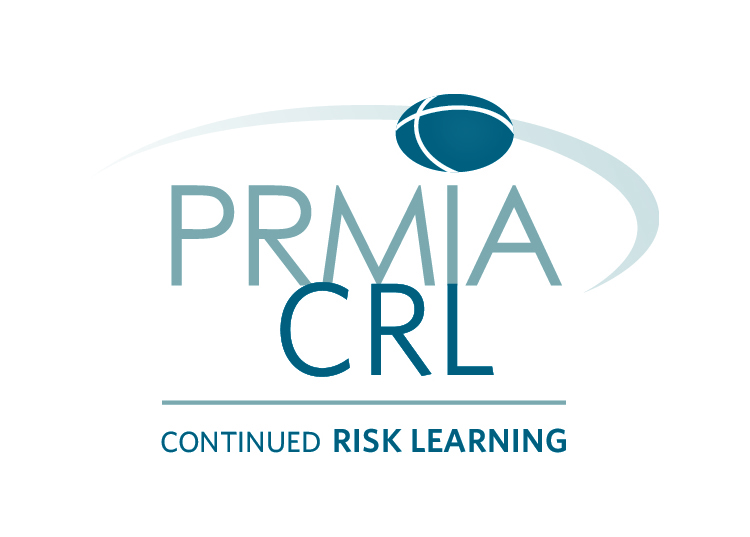 Course Access:
Course Access:
30-day course access from date of purchase
 Time:
Time:
Self-study, self-paced
 Instructor:
Instructor:
Sanjay Sharma, PhD, Founder & CEO
Jeb Beckwith, Managing Director
GreenPoint Global
 Length/Duration:
Length/Duration:
~17 hours of content
| About This Course |
|
|
This course spans from introductory topics designed for delegates who are new to FRTB to diving deeper into the nuances of how FRTB will impact specific sectors and functionalities.
The final lesson addresses what remains to be adjudicated within the BCBS and national supervisors prior to implementation, as well as to address likely timelines for key milestones within specific jurisdictions. An additional session addresses changes that have occurred.
Course Objectives
- Define and establish banking and trading book boundaries for any given instrument or desk
- Understand the mechanics and nuances of implementing Standardized and Internal Models Approaches
- Walk through the capital impact of typical trade types and model portfolios Understand the new dynamics and challenges of defining, accessing, and utilizing market data in various jurisdictions and risk factors under FRTB
- Optimize capital impact from the P&L Attribution test
- Minimize the impact from Non-Modellable Risk Factors (NMRFs)–currently 30% of regulatory capital on average to levels which potentially bring capital requirements to lower levels than existing Basel 2.5
- Establish new governance frameworks for desk structures including more granular regulatory approval process, interaction between Head Trader and supervisor, and Regulatory Trading Desk (RTD) supervisory approval requirements
- Plan for specialized RTDs such as the Internal Risk Transfer (IRT) desk, new roles for the xVA desk, and the securitization desk
- Create solutions for capital cliffs and capital floors
- Budget, plan, and manage the FRTB implementation process in a manner most appropriate for your jurisdiction and bank position
- Describe how the granularity of risk sensitivities affects the relationship between non-modellable risk factors and the P&L Attribution test
- Explain why the Basel 2.0 framework for market risk failed in the 2007-2009 period and how FRTB seeks to improve the framework
- Demonstrate how changes to regulatory trading desk structures may improve both the efficiency and stability of a bank’s regulatory capital regime
|
| Outline |
| |
Topic |
| |
Lesson 1: Market Risk Concepts and Challenges–The Genesis of FRTB
Lesson 2: New Fundamentals I
|
Lesson 3: New Fundamentals II
|
| Lesson 4: Standardized Approach Now Required for All Banks |
| Lesson 5: Internal Models Approach (IMA) |
| Lesson 6: Default Risk Charge (DRC) |
| Lesson 7: IMA’s Most Pernicious Challenges, Part I |
| Lesson 8: IMA’s Most Pernicious Challenges, Part II |
| Lesson 9: New Regime for Model Governance and Risk Transparency |
| Lesson 10: Implementation Timelines/Milestones |
| Lesson 11: Supervisory Implementation |
| Bonus Session: FRTB 2.0 - What's New |
|
| Who Should Attend |
|
This course is designed for professionals in the areas of:
- Trading
- Risk
- Finance
- Audit
- Regulatory
|
| About Our Expert |
|
|
|
 |
|
Sanjay Sharma, PhD, is the Founder and Chairman of GreenPoint Global – a risk advisory, technology, education, legal and compliance services firm headquartered in New York. Founded in 2006, GreenPoint has grown to over 350 employees and over 40 consultants with a global footprint. During 2007-16, Sanjay was the Chief Risk Officer of Discretionary Capital Group and Managing Director in Fixed Income and Currencies Risk Management at RBC Capital Markets in New York. His career in the financial services industry spans over 25 years during which he has held investment banking, risk management and technology transformation positions at Goldman Sachs, Merrill Lynch, Citibank, Moody’s, and Natixis. Sanjay is the author of Risk Transparency (Risk Books, 2013) and has published several papers. Sanjay is co-author of the book Fundamental Review of Trading Book – A Handbook for Practitioners and Regulators, published by RiskBooks, Incisivemedia (2018).
He is an Adjunct Professor at New York University and Fordham’s quantitative finance programs, and financial markets program at EDHEC in Nice, France. He has served as the Founding Director of the RBC/Hass Fellowship Program at the UC Berkeley, and a member of the Board of Directors of UPS Capital (a Division of UPS). He is a former member of the Global Board of Directors for PRMIA. He holds a Ph.D. in Finance from New York University and an MBA from the Wharton School of Business and has undergraduate degrees in Physics and Marine Engineering.
|
 |
|
John “Jeb” Beckwith is Managing Director of GreenPoint’s financial institutions division serving banks and insurers. Jeb brings over 30 years of industry experience in the management of risk, capital markets, lending, and transaction banking practices. Prior to joining GreenPoint, he was Managing Director at RBC Capital Markets for over 10 years. At RBC, Jeb led several front office and risk management groups related to global financial institutions including corporate banking, capital markets cross-sell, regulatory advisory, transaction banking, and trade finance. Jeb founded RBC’s bank regulatory/ratings advisory team and founded/chaired RBC’s committee to adjudicate global limits for all bank and sovereign counterparty risks. Prior to joining RBC, Jeb held various management and corporate banking positions with increasing levels of responsibility at MUFG, Bank of America and BNY-Mellon. |
| Continued Risk Learning Credits: 17 |
 PRMIA Continued Risk Learning (CRL) programs provide you with the opportunity to formally recognize your professional development, documenting your evolution as a risk professional. Employers can see that you are not static, making you a highly valued, dynamic, and desirable employee. The CRL program is open to all Contributing, Sustaining, and Risk Leader members, providing a convenient and easily accessible way to submit, manage, track and document your activities online through the PRMIA CRL Center. To request CRL credits, please email [email protected].
PRMIA Continued Risk Learning (CRL) programs provide you with the opportunity to formally recognize your professional development, documenting your evolution as a risk professional. Employers can see that you are not static, making you a highly valued, dynamic, and desirable employee. The CRL program is open to all Contributing, Sustaining, and Risk Leader members, providing a convenient and easily accessible way to submit, manage, track and document your activities online through the PRMIA CRL Center. To request CRL credits, please email [email protected].
| Registration |
| Membership Type |
Price |
| |
|
| Members |
$ 169.00 |
| Non Members |
$ 199.00 |
Access
Immediate access to the course is granted for 30 days after your purchase. Please complete the course within that time period. If more time is required, you will need to re-enroll.
If this is your first time accessing the PRMIA website you will need to create a short user profile to register. Save on registration by becoming a member.
Register Now
Support
For technical issues regarding course access, contact [email protected]
PRMIA
Digital Product Return Policy.